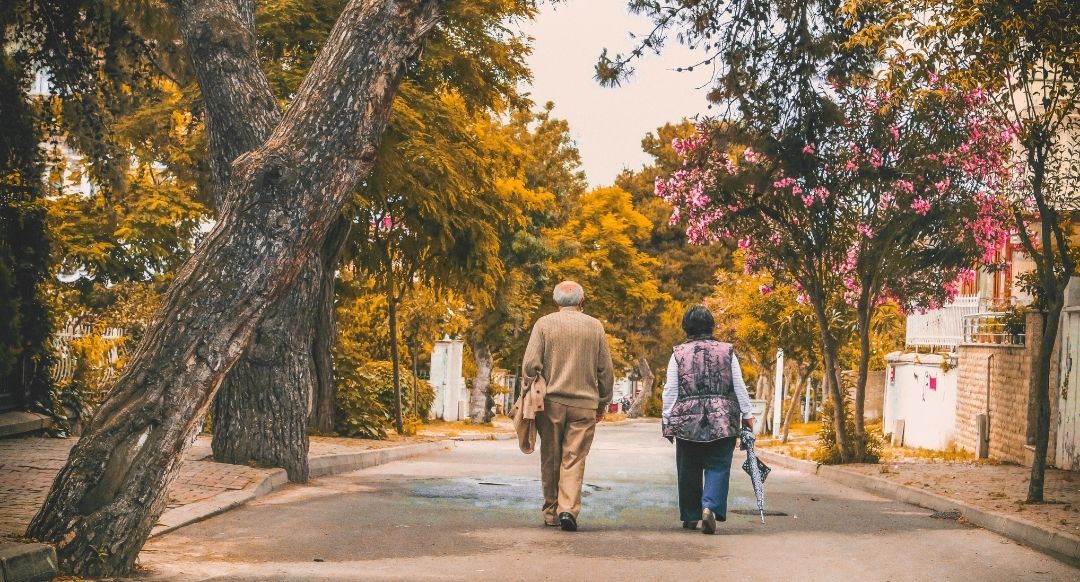Disclaimer: Since Medicaid rules and insurance regulations are updated regularly, past blog posts may not present the most accurate or relevant data. Please contact our office for up-to-date information, strategies, and guidance.
COVID-19 has impacted our lives in many different ways and will continue to affect us for years to come. In addition to solving new issues, this has pushed us to accelerate changes for problems that were already known. The pandemic has brought on uncertainty regarding retirement, and it has inspired many people to consider how they want to live the rest of their lives.
1. More seniors will choose to age at home.
With so many COVID-related deaths happening at long-term care facilities in the U.S., more seniors are likely to choose at-home care. The result is fewer nursing homes with easier access to the equipment and staff they need to be better. We can also expect this to lead to additional resources for aging at home; expanded community-based programs that help with medical services, daycare, home care, and transportation for the elderly; and government programs that pay family caregivers. With a shift in focus away from nursing homes, Americans may rethink age segregation in other areas of our society and work toward more day-to-day contact between younger and older generations.
2. Older Americans will reap the benefits of a technology boom.
Although technological advancements are often geared toward younger generations, the pandemic has compelled entrepreneurs to consider what seniors need to age at home. For instance, COVID-19 has brought on a lot of progress in telemedicine, which has made it easier for vulnerable populations to meet with their doctors virtually. Progress has also been made with wearable devices and diagnostic tests, which can remotely transmit an individual’s blood pressure, weight, and other vital signs. In regard to combatting isolation, seniors can use technology to travel virtually with a tour guide, help children with homework, and practice English with foreign-born students.
3. Life expectancy will decrease.
It’s no secret that COVID-19 has caused a significant number of deaths as well as long-term physical damage. The virus is also impacting our ability to take part in activities like socializing, exercising, and volunteering—activities that are crucial for mental and physical health, especially for older adults. Some studies have even found that loneliness may be related to a higher chance of experiencing depression, cognitive decline, heart disease, and death.
4. People will learn how they want to spend their time.
As a result of the pandemic, more people are working from home and experiencing periods of unemployment, which may help them gain insight on how they will want to spend their retirement. While some of them may want to continue working, others are using this time to explore potential hobbies. Although the pandemic has hampered plans to travel and visit family or friends, it has allowed many retirees to reevaluate their finances, plans, and values. COVID-19 has also reminded many older Americans that life is short, motivating them to reexamine how they want to spend it.
5. More adults are making end-of-life plans.
Most people put off planning for their end-of-life care and expenses. During the pandemic, however, more seniors and even younger individuals are searching for and downloading educational materials for end-of-life planning. Although it’s a difficult subject, making these plans is crucial to help loved ones before and after death.
6. We are aiming to be healthier.
In addition to old age, underlying conditions like diabetes, heart conditions, and obesity put you at a higher risk of dying from COVID-19. Although some of these conditions are beyond our control, diet and exercise play an important role in lowering our risk of disease. As such, many Americans are becoming more aware of these health problems and taking steps to be healthier.
7. We need to save more for retirement.
Although the stock market will continue to improve, the economic crisis caused lower bond yields, which will likely result in lower future returns. Retirement planning strategies that may have worked in the past, such as the 4% rule, may not work anymore.
8. Retirement funds may shift to multipurpose accounts.
Since so many Americans have been directly affected by the economic crisis this year, many of them have recognized the importance of establishing an emergency fund before a 401(k). Retirement funds can be difficult to access before you retire, so workers are looking at other options. In fact, some employers are already using flexible savings accounts that allow their employees to funnel salary deferrals to different goals other than retirement.
9. More seniors will work longer.
The percentage of older adults in the workforce has steadily increased since the 1990s, but this trend is expected to accelerate due to the pandemic. With uncertainty about the future, many older adults will cling to their jobs for longer. Plus, with more companies allowing remote work and flexible scheduling, working is more accessible to the older generation than ever before.
10. We will view aging differently.
Although the pandemic has reinforced some ageist stereotypes and heightened intergenerational conflict, it has also helped many people recognize that seniors are more psychologically resilient in times of crisis and uncertainty. COVID-19 has made many of us realize how much we need each other, regardless of age.
Read the full article from the Wall Street Journal.
READ MORE


